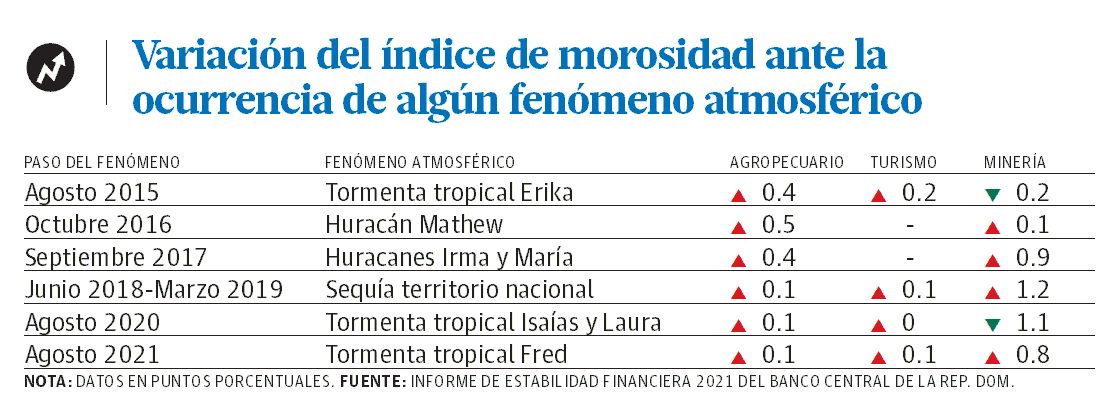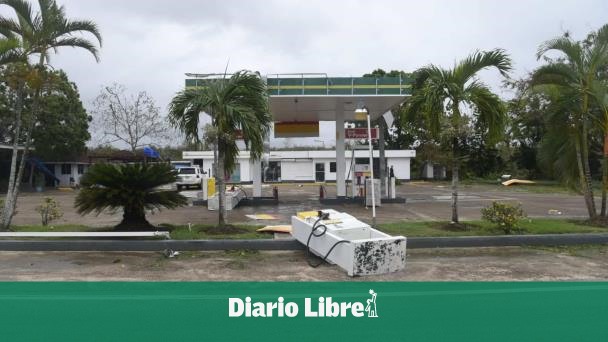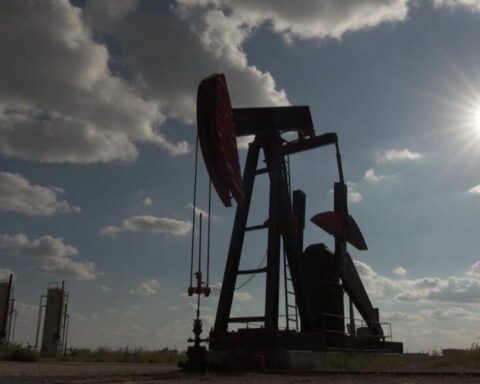After the passage of an atmospheric phenomenon through the Dominican Republic, the country is facing an economic recovery process of approximately 15 months, a situation that poses new challenges for the financial system, which is also beginning to register higher delinquency rates due to the impact that it causes in the productive sectorsas estimated in an analysis published by the central bank.
In its recent 2021 Financial Stability Report, The institution cites an investigation that concluded for 2016 that the economic losses of an atmospheric event in the country are around 1,100 million dollars, equivalent to 1.5% of the gross domestic product (GDP), starting from the proportion of the territory where the natural event occurs.
It should be noted that the authors of the analysis used night images and a wind farm model to estimate the impact of this type of phenomenon on Dominican economic activity.
Among the most vulnerable sectors to the onslaught of cyclones are agriculture, tourism and mining, whose activities directly transfer their effects to the population with the decline of some mass consumption products, decrease in the arrival of tourists and the reduction of export items.
The document specifies that, although “economic models cannot accurately anticipate the possible impact of risks related to climate issues”, financial entities can mitigate the risk of climate impact by incorporating analyzes of previous situations that allow them to quantify the damages and, subsequently, delimit preventive and investment actions.

George’s Impact
The 2021 Financial Stability Report presents the panorama that was experienced in the country after the passage in 1998 of Hurricane Georges, category 4, which caused damage to infrastructure amounting to more than 30,000 million pesos, being around 10.0% of the GDP. The most affected commercial activities were agriculture, livestock, tourism and construction.
The consequences of this phenomenon led to a GDP slowdown of more than 2.0 percentage points and high inflationary pressures due to the damage to the production of consumer goods, especially food of agricultural origin.
As a result of that hurricane, “monetary and financial policy actions were oriented towards the provision of liquidity to financial intermediation entities to facilitate the reconstruction process through the channeling of resources towards the productive sectors,” the analysis highlights.
The central bank calculates that, if an event of this magnitude were to occur as of the second half of this 2022, it could lead to the economy ending with a growth of only 2.0% towards the end of the year, with significant effects in sectors that constitute about 34.1% of GDP and represent around 19.5% of the credits placed by the financial system.
delinquency
According to him central bank, the risks arising from climate change may reduce the repayment capacity of borrowers. The results show that, the month after a cyclone, delinquency levels in the agricultural, tourism and mining sectors tend to increase.
However, the exposure of financial intermediation entities to the risk of climate change is low, since on average the past due portfolio of these activities represents 13% of total past due loans.
Even so, the recommendations contained in the report include comments from the Financial Stability Council of the G-20 countries, which highlights that some institutions apply exclusion policies for clients with a high degree of exposure to risks related to climate change, however , that action could affect financial inclusion.








